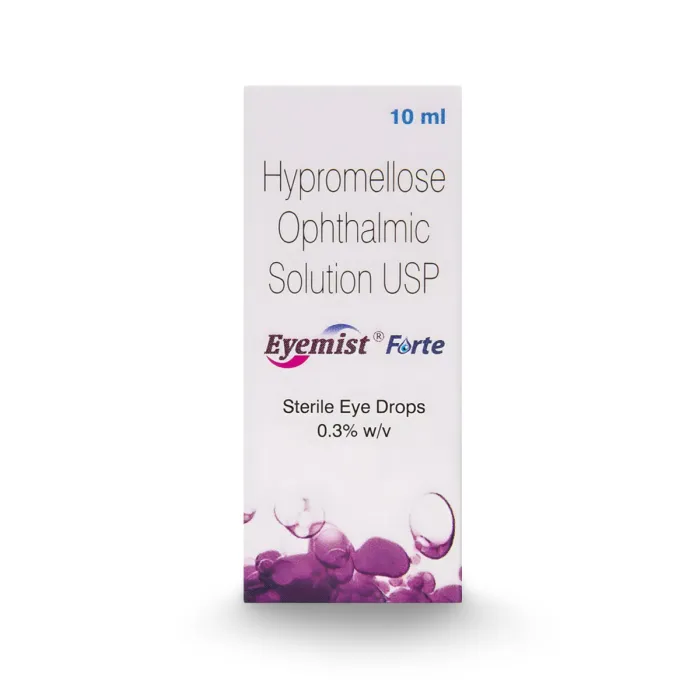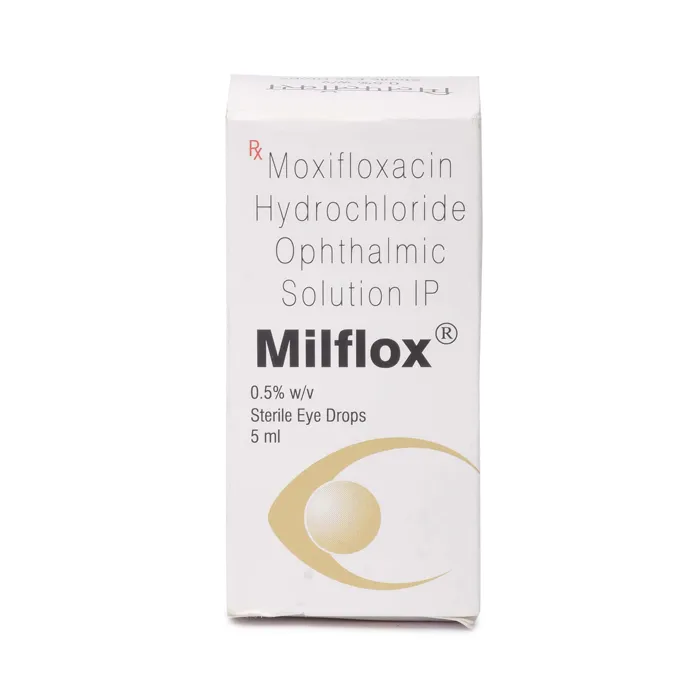Conjunctivitis, often known as pink eye, is a common eye condition that can affect anyone at any age.
It causes pain, redness, and frequently a liquid discharge.
However, do not worry, as pink eye is a treatable eye condition.
There are several medications that might help reduce pink eye symptoms.
Finding the right medication for pink eye is crucial for quick treatment and recovery, regardless of the cause.
This article delves into medicines for pink eye and examines their several kinds, ranging from antibiotics, antivirals, and over the counter medicines.
Types of Pink Eye Medicine
Pink eye is caused by bacteria, viruses, allergens, and irritants.
It is crucial to seek medical help to get the right diagnosis and care if you think you may have pink eye.
Depending on the type and severity of pink eye, Ophthalmologists and Optometrists can recommend the best medication to ease the symptoms and provide relief.
There are numerous pink eye medicines that might help to ease the symptoms and treat the types of Conjunctivitis safely and effectively.
Let us explore these pink eye medicines in detail.
Save up to 90% on your medicine bills

Eyemist Forte 10 ml

Milflox 0.5% 5 ml

Restasis 0.05% Ophthalmic Emulsion

Pred Forte 10 ml
Antibiotics for Bacterial Pink Eye
 Source: Biserka_Stojanovic_from_Getty_Images
Source: Biserka_Stojanovic_from_Getty_ImagesAntibiotics are frequently used to treat bacterial Conjunctivitis.
These medicines aid in lessening the bacterial pink eye symptoms and assist in getting rid of the bacteria that is causing it.
Antibiotics frequently prescribed for bacterial pink eye include:
Eye Drops: Antibiotic eye drops are usually prescribed for mild to moderate bacterial pink eye episodes.
They are easy to administer and work directly at the site of infection.
Ointments: Antibiotic ointments offer more enduring comfort than eye drops because they are thicker.
However, they are usually prescribed for young children who have trouble using eye drops or oral pills.
Antiviral Medications for Viral Pink Eye
Contrary to bacterial pink eye, viral pink eye is caused due to viruses and cannot be cured with medicines.
Antiviral medications may be used to treat viral pink eye, particularly if caused by the Herpes Simplex Virus (HSV).
These medicines can help lessen the intensity of the symptoms.
Allergy Medications for Allergic Pink Eye
Allergy medicines may relieve allergic Conjunctivitis caused by pollen, dust, or pet dander.
Common medications for allergic pink eye are-
Antihistamines: Oral Antihistamines or Antihistamines eye drops may help reduce allergic pink eye’s itch and redness.
Mast Cell Stabilizers: The medication prevents the release of allergy-triggering molecules such as histamine and can be purchased as eye drops.
Prescription Pink Eye Medications
Prescription medicines can effectively manage and treat Conjunctivitis symptoms. They are safer and prescribed by a medical specialist.
Common prescription-based medicines for pink eye include:
Prescription Antibiotics: Bacterial pink eye can be treated with prescription Antibiotic eye drops or ointments.
Prescription Antiviral Medications: These medicines are used for severe viral pink eye caused by the Herpes Simplex Virus.
Corticosteroid Eye Drops: Corticosteroid eye drops are used to reduce swelling and inflammation in the eyes and relieve pain.
Antibiotics are an effective medication for treating bacterial pink eye. If you want to explore more about antibiotics, read Understanding Pink Eye Antibiotics: Treatment Options and Guidelines.
Over the Counter Pink Eye Medicine
The symptoms of pink eye can often be managed conveniently by using over-the-counter (OTC) medicines.
They might help ease the discomfort caused due to viral or allergic Conjunctivitis and are accessible without a prescription.
Common over-the-counter remedies for pink eye include:
Artificial Tears: Eye drops that lubricate the eyes might temporarily relieve the dryness and discomfort from pink eye.
Antihistamine Eye Drops: This over-the-counter pink eye medicine might lessen the redness and itching of allergic pink eye.
Decongestant Eye Drops: Decongestant eye drops might help if blood vessel dilatation caused by pink eye causes eye redness.
However, it is vital to note that they are not as effective as prescription-based medicines and might increase the risk of side effects.
Therefore, it is advised to buy your prescription-based medications from authorized and trustworthy pharmacies to treat pink eye.
Do you want more information on over-the-counter options for managing pink eye? To learn more, read Is Over The Counter Pink Eye Medicine Effective? A Comprehensive Guide.
Where to Get Pink Eye Medicine
 Source: Phoenixns from Getty Images
Source: Phoenixns from Getty ImagesThere are several options available to avail prescription or over the counter pink eye medicines.
Different sources for obtaining pink eye medicine include retail pharmacies and reputable online pharmacies.
Pharmacies: Both prescription and over-the-counter pink eye medicines are readily available in local pharmacies.
Your doctor can advise you on the best options.
Online Pharmacies: Online pharmacies are known for their cost-effectiveness, offering a wide range of prescription and over-the-counter medications at competitive prices.
Additionally, they provide the convenience of doorstep delivery, saving time and effort for individuals seeking essential healthcare products.
According to the Centers for Disease Control and Prevention (CDC), people should avoid buying medications from unreliable sources online.
The FDA also warns individuals about online pharmacies that sell medicines without a prescription.
Those pharmacies might be unauthorized to sell products.
Recent studies also indicaterisks of purchasing medications from unauthorized websites have increased.
Therefore, it is advised to buy from a trusted and licensed online pharmacy
Online pharmacies like Cheap Medicine Shop are reliable and trustworthy sources for all your pink eye medicine needs.
Conclusion
Pink eye is a common eye condition that causes pain, redness, and watery discharge.
A thorough understanding of pink eye medicine is essential for anyone dealing with this eye issue.
Several over-the-counter and prescription medicines can treat bacterial, viral, or allergic Conjunctivitis and reduce symptoms while accelerating healing.
Over the counter pink eye medicine may provide relief but lacks FDA approval.
The key to choosing the best course of pink eye treatment is to promptly seek medical advice and a diagnosis from qualified healthcare providers.
Remember that prompt treatment reduces discomfort and is essential in stopping pink eye from spreading.
To recover quickly, prioritize your eye health, be educated, and take action.

Frequently Asked Questions
Can I use over-the-counter (OTC) eye drops for bacterial pink eye?
No, OTC eye drops are not effective against the bacterial pink eye.
OTC eye drops are not effective and might increase the risk of side effects.
It is best to only purchase prescription-based medicines.
See our Recommendations
How long does it take for pink eye to clear up with medication?
The duration of pink eye treatment depends on the underlying cause.
The bacterial pink eye often improves within a few days of starting antibiotics, while viral pink eye may take up to two weeks to resolve.
Allergic pink eye can be managed with medication if allergen exposure continues.
See our Recommendations
Can I wear contact lenses if I have pink eye?
No, it is generally not recommended to wear contact lenses when you have pink eye.
It can worsen the condition and increase the risk of spreading the infection.
Use glasses instead and consult your eye doctor for guidance.
See our Recommendations
Are there any home remedies for pink eye?
No, while some home remedies like warm compresses and good hygiene practices may help reduce symptoms, they are not a substitute for medical treatment.
Consult a healthcare professional for proper diagnosis and treatment.
See our Recommendations
How do I know if I have viral or bacterial pink eye?
The basic difference between bacterial and viral eye infections is the texture of eye discharge.
A healthcare provider can perform tests to determine the cause and prescribe the appropriate medication.
See our Recommendations
Cheap Medicine Shop only refers to credible, authoritative sources for our content. If you’re curious about how we ensure the integrity of our content, we encourage you to read our Content Information Policy.














